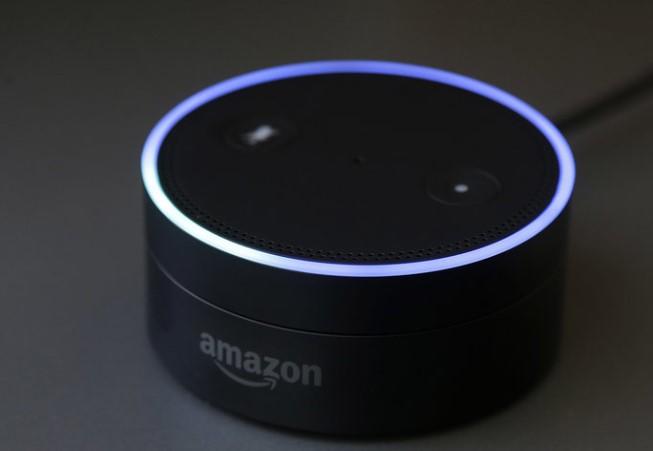It seemed like a simple enough idea: a journalist working for NPR wanted to get Amazon (and other tech giants) out of her life completely for a week. The broader question that Kashmir Hill wanted to answer, was whether or not it was possible for us to detach ourselves from big technology companies if we so desired.
The answer, unsurprisingly, seemed to be a resounding no.
Hill tried to ditch Amazon as part of a larger six week experiment of living without technology companies like Microsoft, Google and Apple. She had set up a VPN that kept her devices off of any Amazon products and she avoided Whole Foods and turned off her Kindles.
But immediately, a problem presented itself: she couldn’t get rid of Alexa. Hill had become so used to its presence around the house that she hadn’t even considered putting it away as part of her experiment. “We’ve only had it for two years, and it already has the level of prominence where I couldn’t have imagined just taking it off the counter,” she told NPR.
Hill works as a reporter for Gizmodo covering privacy. She took on the task of trying to separate herself from her technology as a way to figure out whether or not technology companies had become too powerful economically.
Hill said: “People will say, if you don’t like the company, just stop using their products. I wanted to find out if that was possible, and, spoiler, it’s not possible.”
As part of the experiment, Hill tried to sever off ties that would funnel her data, money and attention to big technology companies. Using a public list of IP addresses that companies like Amazon, Apple and Microsoft control, a technologist built her a VPN that blacklisted those addresses. She finally threw Alexa in a drawer and started her week without Amazon.
What she immediately found out was that Amazon controls a vast cross-section of the web.
Talking about Amazon Web services, she said: “When I started pulling stats about Amazon, I was shocked. They basically control kind of the backbone of Internet infrastructure. They’re not just shipping packages out all over America. They’re also shipping a ton of data to people’s computers.”
Major websites like Netflix, HBO Go and Airbnb are all hosted by Amazon Web Services and were off-limits during the week that she was trying to avoid the company. At one point, the experiment moved her daughter to tears due to lack of entertainment content.
When similarly trying to block Google, Hill was unable to use Lyft or Uber which both rely on Google Maps. Going into coffee shops put her at risk of coming into contact with Microsoft software if the shop used Windows for its point-of-sale system. Finally, cutting off Facebook “left her feeling strangely isolated”.
She also had difficulty trying to find a smartphone while boycotting Google and Apple.
“Google and Apple have a duopoly on the smartphone market. So when I went out trying to find a smartphone that was not made or touched by either tech giant, it wasn’t possible,” she said.
Hill also slipped up during the course of the Amazon experiment, ordering an item off of eBay that was instead fulfilled using Amazon. The one company that she said was easy to avoid was Apple. She claims that once she gave up her iPhone and stepped out of Apple’s “walled garden”, she didn’t have any trouble staying away from the company.
She concluded: “The big thing I learned is that it’s not possible to navigate the modern world without coming into contact with these companies. It made me certainly sympathetic to some of the critics who are saying these companies are too dominant in their spaces.”
via ZeroHedge News http://bit.ly/2Gn3E4y Tyler Durden

